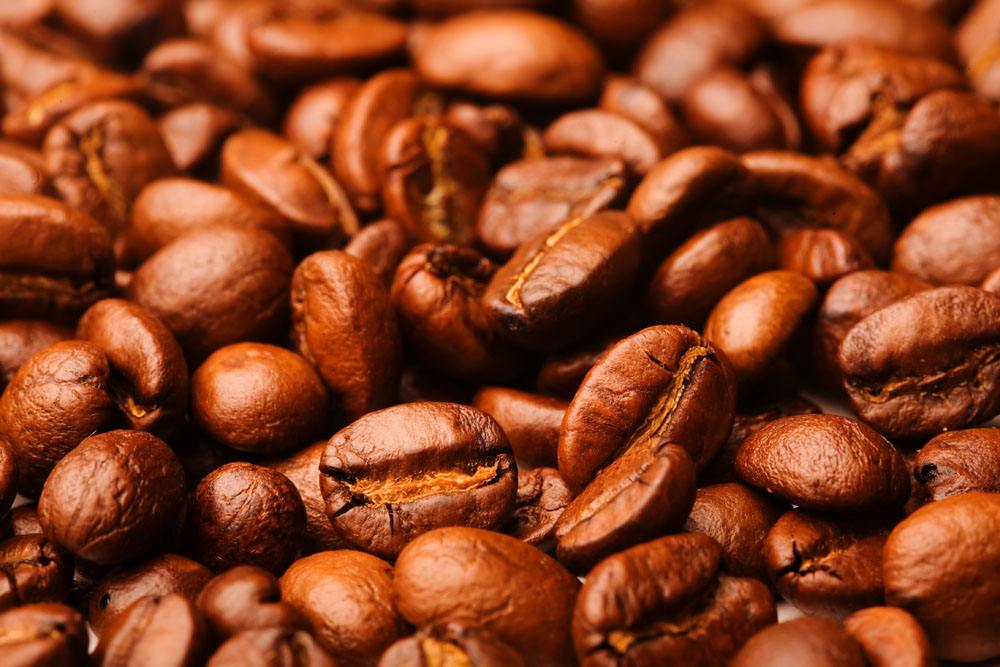Coffee bean growing situation in Brazil coffee bean producing area
Follow the caf é (Wechat official account vdailycom) and found that Beautiful Cafe opened a small shop of its own.
In terms of natural conditions, Brazil is in the tropics, with a tropical rain forest climate in the north, hot and humid all the year round, suitable for tropical crops, coffee trees are sunny crops, and sufficient sunlight is the condition for their growth. The reduction in coffee production in Brazil has directly pushed up the price of coffee beans in the international market and may affect the coffee retail industry. Here, Brazilian coffee beans have also attracted the attention of the world.
Brazil is vividly compared to the "giant" and "monarch" of the coffee world. In fact, all blends run by big roasters contain some coffee from Brazil, and the vast majority of espressos are made mainly from Brazilian coffee.

Before World War II, Brazil accounted for 50% or more of the world's coffee production, now close to 30%, but the country's impact on the world coffee, especially on coffee prices, is significant. For example, two frost disasters in 1994 caused a sharp rise in global coffee prices. The continuous drought in Brazil since the beginning of this year has seriously affected the production of coffee beans. The decline in coffee production in Brazil has directly pushed up the price of coffee beans in the international market and may affect the coffee retail industry.
As there are so many kinds of Brazilian coffee in Brazil, you can't just use the word "Brazilian coffee" to include it. Like other Arabica coffee, Brazilian coffee is called Brazils to distinguish it from Milds coffee. The vast majority of Brazilian coffee is unwashed and sun-dried and is classified according to the name of the state of origin and port of transport. Although most of Brazil's 21 states grow coffee, total production is mainly concentrated in Parana, Sao Paulo, Minas Gerais, Espirito Santo and Bahia, which alone account for 55 per cent of Brazil's total production.
Although coffee is diverse, Brazilian coffee is suitable for the taste of the public. For example, coffee produced in the northern coastal areas has a typical iodine taste, reminiscent of the sea after drinking. This coffee is exported to North America, the Middle East and Eastern Europe.
Today, Brazil's brand as the origin of specialty coffee has been established, and the Brazilian Special Coffee Association (BSCA), which has many of Brazil's most important producing areas, represents the interests of the world's top coffee growers and the most advanced coffee production technology. In Missouri, for example, production has soared in the central region of Serrado over the past few years. Here, the vast Datterra plantation is not only the largest plantation in the world, but also a benchmark for producing high-quality coffee. Traditional coffee plantations in the south of the state, such as Lapanema, Alfenas and Vista Allegre, also regularly produce some of the region's top coffee.
Brazil's growth in the coffee industry may be due to the regular coffee competition held in Brazil, usually hosted by the Italian Federation of espresso roasters and the "International winning Cup" coffee judging committee. These competitions not only attract people's attention to Brazilian high-quality coffee, but also drive the market price of Brazil's top coffee.
Top Brazilian coffee may not always be easy to get. Because, after the United States, Brazil itself has become the world's largest consumer of coffee and is still growing rapidly. A large number of high-quality coffee has found a place in the home market, and consumers' tastes are becoming more and more picky.
Historically, Brazil has been a Portuguese colony for a long time. In order to meet the needs of Western Europe, it has planted single crops for a long time and developed the tropical plantation economy, so Brazilian coffee has been its pillar industry for a long time. From the market point of view, coffee and its processed products are rich in caffeine, exhilarate and play an important role in the working group dominated by mental workers, so they play a huge role in modern society, so the market is broad. Taken together, Brazil ranks first in coffee production in the world.
Important Notice :
前街咖啡 FrontStreet Coffee has moved to new addredd:
FrontStreet Coffee Address: 315,Donghua East Road,GuangZhou
Tel:020 38364473
- Prev

How about Brazilian bourbon coffee beans? flavor and taste characteristics of Brazilian Xidora half-sun coffee beans
Following Cafe (Wechat official account vdailycom) found that the most famous coffee shop in Brazil is Sandos Coffee, which tastes mellow and neutral, which can be boiled directly or mixed with other kinds of coffee beans to make mixed coffee, which is also a good choice. I haven't drunk a lot of Brazilian coffee, such as Sanders Santos, who has been reduced to a commercial mix of beans.
- Next

The price of Brazilian coffee beans and how to import Brazilian coffee beans
Following Cafe Review (official Wechat account vdailycom) found that the Cafe Beautiful Cafe opened a small shop of its own, the price of Brazilian coffee beans supply one-third of the global coffee demand, but the coffee harvest in Brazil in 2014 was the worst in three years. Coffee prices rose further, once rising above US $2 per pound, and large coffee chains such as Starbucks quickly followed suit to raise the price of coffee drinks. Coffee
Related
- Detailed explanation of Jadeite planting Land in Panamanian Jadeite Manor introduction to the grading system of Jadeite competitive bidding, Red bid, Green bid and Rose Summer
- Story of Coffee planting in Brenka region of Costa Rica Stonehenge Manor anaerobic heavy honey treatment of flavor mouth
- What's on the barrel of Blue Mountain Coffee beans?
- Can American coffee also pull flowers? How to use hot American style to pull out a good-looking pattern?
- Can you make a cold extract with coffee beans? What is the right proportion for cold-extracted coffee formula?
- Indonesian PWN Gold Mandrine Coffee Origin Features Flavor How to Chong? Mandolin coffee is American.
- A brief introduction to the flavor characteristics of Brazilian yellow bourbon coffee beans
- What is the effect of different water quality on the flavor of cold-extracted coffee? What kind of water is best for brewing coffee?
- Why do you think of Rose Summer whenever you mention Panamanian coffee?
- Introduction to the characteristics of authentic blue mountain coffee bean producing areas? What is the CIB Coffee Authority in Jamaica?

